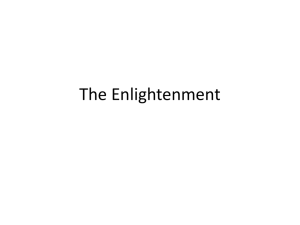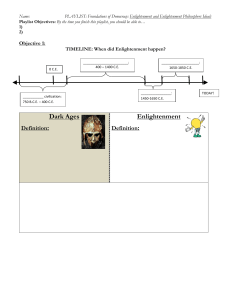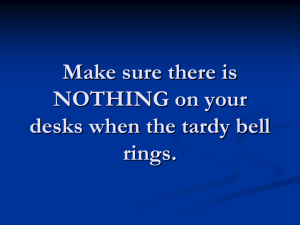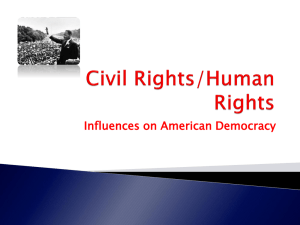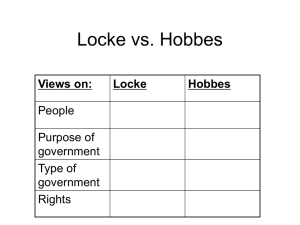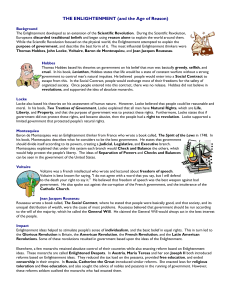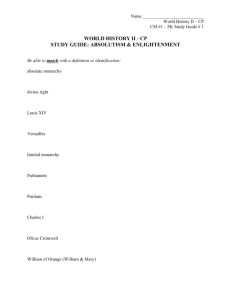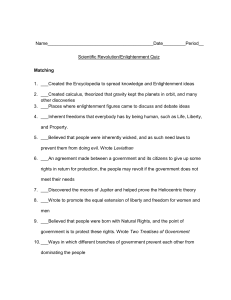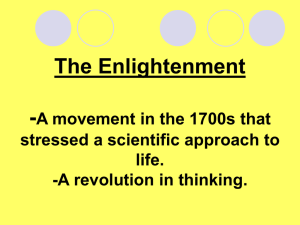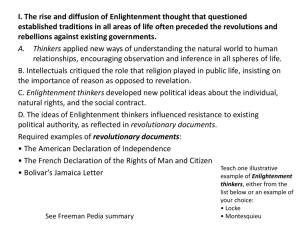The Enlightenment - Fort Thomas Independent Schools
advertisement
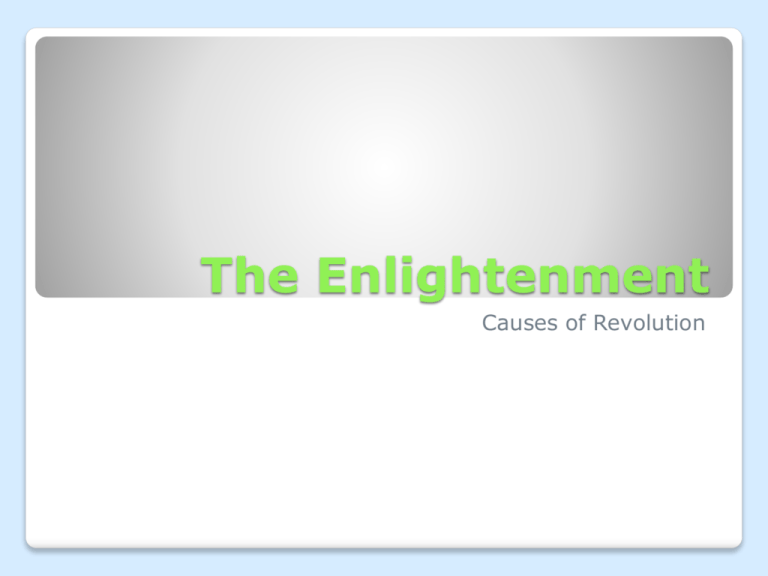
The Enlightenment Causes of Revolution Objectives What are the main ideas of the Enlightenment philosophers? How do they challenge the powers of Absolute Monarchs? John Locke Thomas Hobbes Voltaire Leviathan (1651) Englishman Man motivated by power & fear –> needed an allpowerful sovereign ◦ Without one, life would be “solitary, nasty, poor, brutish & short” Politics as a science Thomas Hobbes Individual must become rational, man innately good – TABULA RASA Virtue can be learned & practiced “Divine right of kings” is nonexistent “Two Treaties of Civil Government” Natural rights given to all ◦ Life, liberty & property Favored a republic Social contract btw people & government (what is influenced by this idea??) John Locke 1st of the French Philosophes “The Spirit of the Laws” (1749) Separation of powers ensures freedom & liberty 3 types of government= monarchy, despotism & republic Baron de Montesquieu (Charles de Secondat) Author & poet “Candide” (1759) Men are born equalvirtue makes the difference Directly critiqued French crown so fled Voltaire (AKA Francois Marie Arouet) “The Social Contract” (1762) Virtue exists in nature, not in society “Man is born free, yet everywhere he is in chains.” Government is necessary Liberty, equality, fraternity (brotherhood) General will= with each other, not rulers Republican government with direct democracy ◦ No legal protections for individual rights Influenced French revolutionaries & Karl Marx Jean Jacques Rousseau • Vindication of the Rights of Woman •English writer, philosopher •Men & women are equal Mary Wollstonecraft Salons New forms of civil society arose ◦ Literacy increasing Reform & critique couldn’t stop Birth of the “individual” ◦ Natural rights Implications?? Aftermath…Revolution? So… ◦ What are the main ideas of the Enlightenment philosophers? ◦ How do they challenge the powers of Absolute Monarchs? Conclusion & Connections Answer the following questions after you’ve read the documents: (group-work is ok, but I only need 1 paper per group): ◦ How would these writers have come up with their point of view? ◦ What is Hobbes main argument? Include details. ◦ What is Locke’s main argument/message? Provide details. ◦ What are the major tenets/beliefs of Montesquieu & Rousseau? Answer individually (& turn in by the end of class): ◦ Describe how 2 Enlightenment thinkers directly challenged absolutism (absolute monarchy). Be specific & give examples from the text. Enlightenment Primary Source Documents

